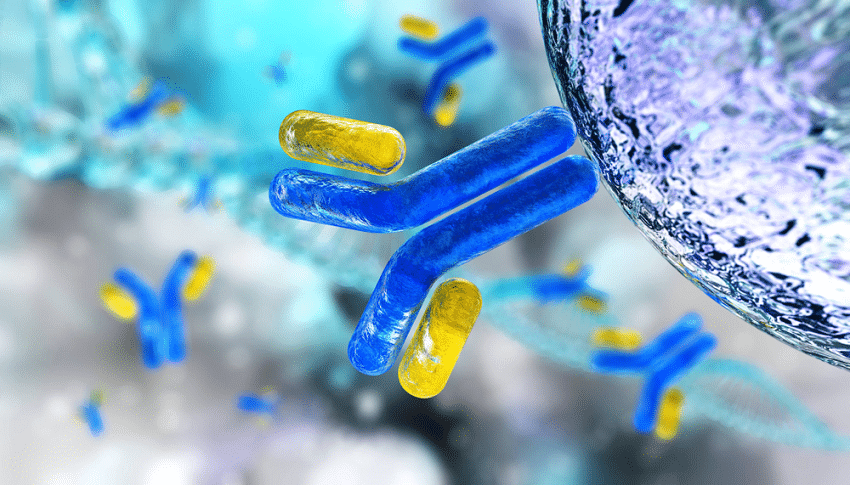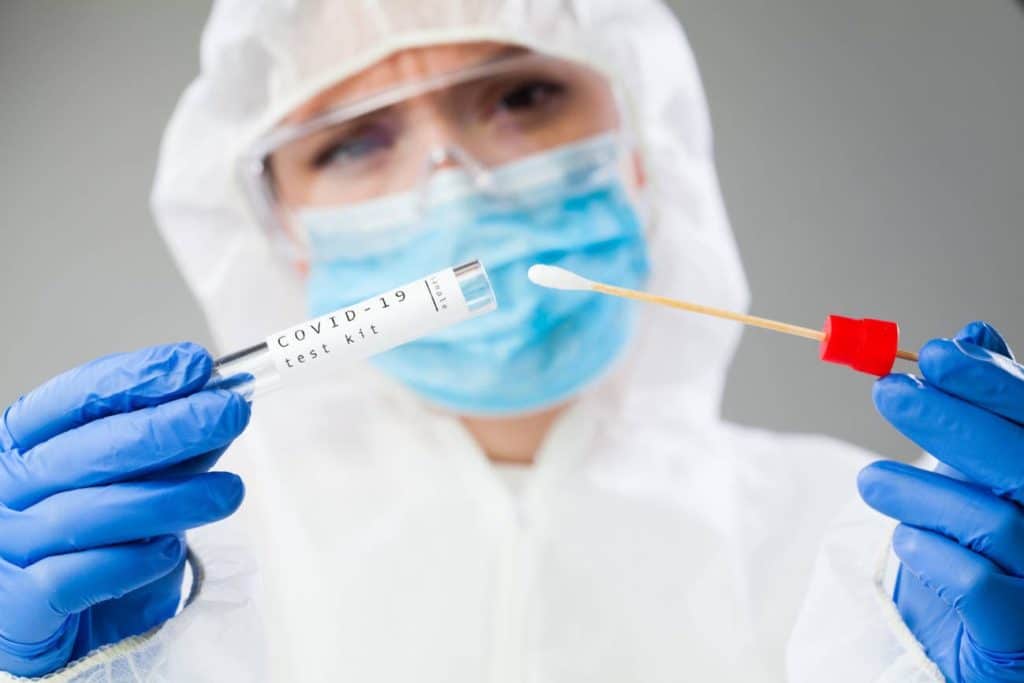CONTACT
We will reply as soon as possible.
Enevia Health, LLC
30 N Gould Ste N, Sheridan, WY 82801, USA
Below we detail the main blood markers that are most useful when evaluating the immune system.

Immunoglobulins, also known as antibodies, are proteins produced by the immune system in response to the presence of foreign substances in the body, such as bacteria, viruses, fungi, and other microorganisms. Immunoglobulins are responsible for recognizing, binding and neutralizing these substances, preventing their ability to cause disease.
There are five main classes of immunoglobulins, called IgG, IgA, IgM, IgE, and IgD. each with specific functions and present in different parts of the body.
Supplements are a set of immune system proteins that act in a cascade to promote and amplify the body's immune response. Complements are produced by the liver and circulate in the blood in an inactive form until activated by infection or by antibody binding to foreign cell surface antigens.
Supplements have various roles in the immune response, including lysis (destruction) of bacteria and infected cells, opsonization of antigens to facilitate their removal by phagocytes, activation of inflammatory cells, and regulation of the immune response.
Supplements are classified into three main pathways of activation: the classical pathway, the alternative pathway, and the lectin pathway. Each of these pathways is activated differently, but they all converge in a series of cascading reactions that culminate in the formation of the membrane attack complex (MAC), which is capable of lysing foreign cells. .

C-reactive protein (CRP) is produced by the liver in response to acute inflammation and is commonly used as a marker of bacterial infections or inflammatory processes in the body. TNF-α is a protein produced by macrophages and other immune cells that acts as a mediator of inflammation and has been linked to various chronic inflammatory diseases, including rheumatoid arthritis and inflammatory bowel disease. Proinflammatory interleukins are also proteins produced by immune cells that are involved in various inflammatory processes and have been linked to autoimmune and other inflammatory diseases.
Neuron-Specific Enolase, also known as NSE for its acronym in English (Neuron-Specific Enolase), is an enzyme present in neurons and some endocrine cells. Measurement of NSE levels in the blood is used as a marker of neuronal damage, since it is released into the bloodstream in situations of cell injury or death. NSE can be an indicator of damage to the central nervous system, and its measurement can be useful for the diagnosis and monitoring of various neurological pathologies, such as head injuries, cerebrovascular accidents, meningitis, encephalitis, neurodegeneration, among others.
Interleukin 1 (IL-1) is a type of proinflammatory cytokine that is produced in response to infection or inflammation in the body. Elevated levels of IL-1 in a blood test may indicate the presence of an inflammatory response in the body, such as an infection or autoimmune disease.
Interleukin 6 (IL-6) is a protein that is produced in response to inflammation and has various functions in the immune system, including stimulating B cell production and T cell differentiation. In a blood test, Elevated levels of IL-6 can indicate the presence of acute or chronic inflammation in the body, and have been associated with various autoimmune diseases, infections, cancer, and chronic inflammatory disorders such as rheumatoid arthritis.
Interleukin 17A (IL-17A) is a protein produced by immune cells, including T cells and innate defense cells, such as neutrophils. IL-17A has been shown to play an important role in inflammation and the immune response to certain infections and autoimmune diseases.
Detection of elevated levels of IL-17A in a blood test can indicate the presence of an inflammatory response in the body, which can be helpful in diagnosing and monitoring autoimmune diseases such as rheumatoid arthritis, inflammatory bowel disease, ankylosing spondylitis, psoriasis and other conditions.
IgA and IgM They are immunoglobulins, that is, antibodies produced by the immune system in response to the presence of a virus or bacteria in the body.
IgA is found mainly in the mucous membranes of the body, such as the nose, mouth, and gastrointestinal tract, and helps prevent microorganisms from entering the body. Elevated levels of IgA in the blood can indicate an active infection, but it can also be present in autoimmune diseases and certain types of cancer. However, elevated IgA blood levels can also be a random finding and may not necessarily indicate a particular disease.
IgM it is the first antibody produced in response to an acute infection and is most effective against newly invaded microorganisms. Elevated levels of IgM in the blood are an indicator of an acute or recent infection.
PCR (Polymerase Chain Reaction) It is a laboratory technique that is used to amplify and detect small amounts of genetic material, such as the DNA or RNA of the virus or bacteria. PCR is commonly used to diagnose viral and bacterial infections.

Gamma interferon (IFN-γ) is a protein produced by cells of the immune system, mainly T lymphocytes and NK (natural killer) cells. Detection of elevated levels of Gamma interferon in a blood test may be indicative of an active viral or bacterial infection, as this protein helps stimulate and activate immune system cells to fight infection. It may also be a useful marker for monitoring the immune response to cancer therapies or autoimmune diseases.
Rheumatoid factor (RF) is an antibody found in the blood that can indicate the presence of autoimmune diseases, such as rheumatoid arthritis and systemic lupus erythematosus. However, the presence of RF can also be a finding in healthy people and does not necessarily indicate the presence of a disease.
The Antinucleic Factor (ANF) is a laboratory test used to detect the presence of antibodies against the genetic material of the cell nucleus. A positive FAN result suggests the presence of autoimmune diseases such as systemic lupus erythematosus (SLE), rheumatoid arthritis, scleroderma, and other autoimmune diseases. However, a positive result is not enough to confirm a diagnosis, as some people can test positive without having an autoimmune disease.
The presence of anti-native DNA antibodies in a blood test indicates a possible autoimmune disease, such as systemic lupus erythematosus (SLE) or mixed connective tissue disease (MSD). These antibodies attack the body's own DNA, which can cause inflammation and tissue damage. However, it is important to note that the presence of native AntiDNA antibodies is not sufficient to diagnose an autoimmune disease, and a full clinical evaluation is required to confirm the diagnosis.
At Enevia Health you will find all these tests at the best prices on the market, for more information info@eneviahealth.com
ENLARGED LYMPHOCYTE POPULATIONS - BY FLOW CYTOMETRY
You can buy this panel only in https://testautismo.com/producto/test-panel-linfocitario/
IMMUNOGLOBULINS
ACCESSORIES
MARKERS OF INFLAMMATION
VIRUS AND BACTERIA SEROLOGIES
AUTOIMMUNITY MARKERS
OTHER BOOKMARKS
We will reply as soon as possible.
30 N Gould Ste N, Sheridan, WY 82801, USA
Our groups are the ideal platform to learn and share your scientific concerns about neurodevelopment issues
*Our purpose is informational only, it is not intended to be a substitute for medical advice, diagnosis or treatment.
We are working on our website. For any queries, you can contact our customer service team at atencionalcliente@eneviahealth.com